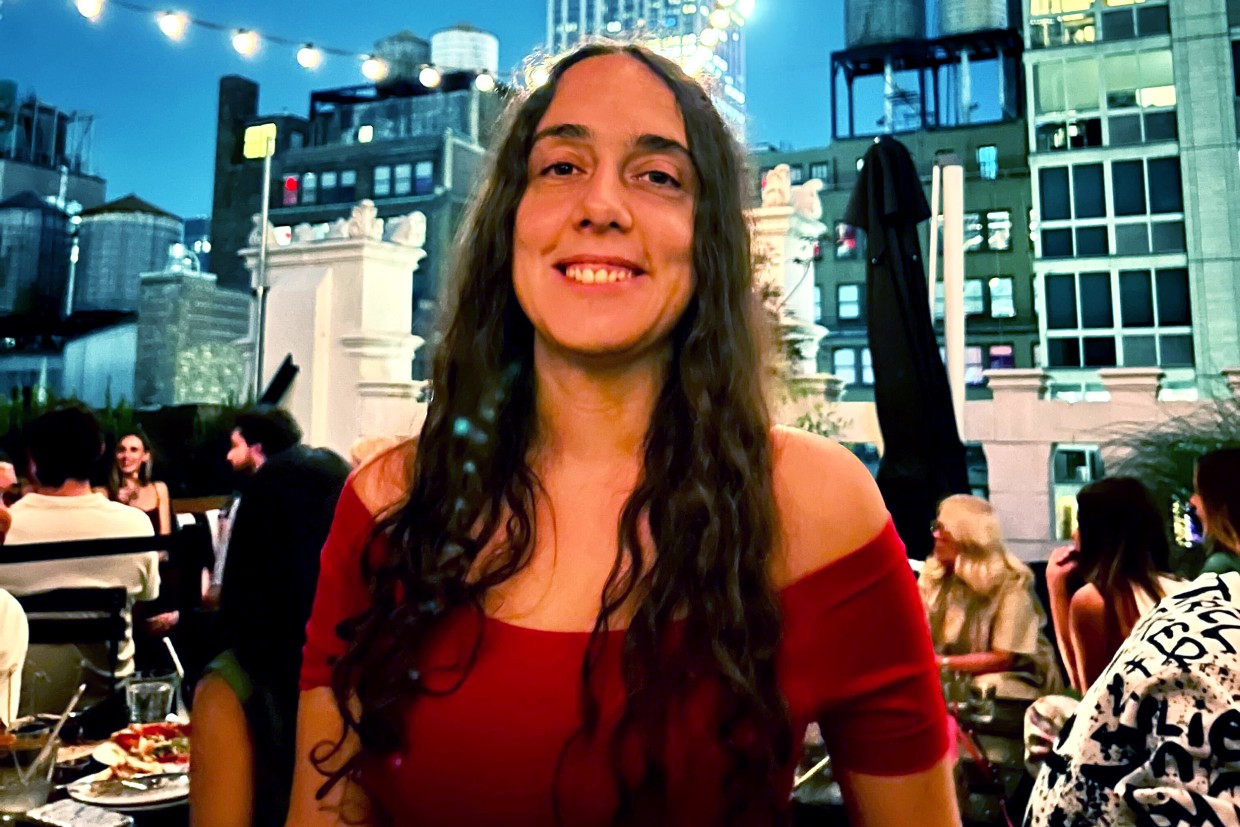
When Camila Bortolleto was 9 years old, her parents brought her from Brazil to the U.S.
Bortolleto’s parents are undocumented, but in 2013 she was approved for the Deferred Action for Childhood Arrivals program, which allowed her to get a job and, with it, job-based health insurance.
Watch NBC6 free wherever you are
Bortolleto, now 36 and living in Connecticut, left her job at a nonprofit in June, which meant losing her health insurance and leaving her with no other options: DACA recipients have been barred from receiving government-funded health insurance.
That changed Friday, when tens of thousands of DACA recipients became able to sign up for health insurance coverage under the Affordable Care Act for the first time.
Get local news you need to know to start your day with NBC 6's News Headlines newsletter.

The change — which coincided with the first day of the ACA’s open enrollment period — marks a pivotal moment for the more than 535,000 active DACA recipients in the U.S.
That lack of access, experts say, has led to high rates of uninsured among DACA recipients, sometimes referred to as "Dreamers."
U.S. & World
In May, the Biden administration finalized a rule that allows DACA recipients to apply for coverage through HealthCare.gov, as well as the state-based marketplaces, starting Nov. 1. It also lets them access subsidies that lower the cost of monthly premiums.
Bortolleto said she plans to sign up as early as Friday.
Several weeks ago, she said she was bitten by a dog.
Although she was in severe pain, she said, she initially avoided the emergency room because of the cost.
“I wasn’t going to go,” Bortolleto said. “But later in the morning, it just hurt, not just the dog bite, but everything hurt.”
The visit wound up costing her a couple of hundred dollars.
“It does give me a sense of safety that I will be able to get health insurance while I still look for the next job,” Bortolleto said.

High uninsured rates
DACA was an executive action signed by then-President Barack Obama in June 2012 that protected undocumented immigrants who came to the U.S. as children from deportation and gave them work authorization.
For many, the ability to work also meant access to health insurance.
Without access to government-funded programs, insurance options are extremely limited for Dreamers who didn’t get coverage through their jobs, said Drishti Pillai, director of immigrant health policy at KFF, a nonprofit group that researches health policy issues.
Some turn to state programs for undocumented immigrants, she said. Others may go uninsured and rely on community health clinics that offer free or low-cost care.
While people can buy coverage directly through an insurer, the cost is often exorbitant and usually not an option for undocumented immigrants, Pillai said.
The limited options, she said, mean many DACA recipients can’t get quality health insurance, resulting in high uninsured rates.
A survey published last year by the immigrant rights nonprofit group National Immigration Law Center found that about 1 in 4 DACA recipients reported being uninsured.
“Now, they will have access to the same health insurance plans that other people do in the ACA,” Pillai said.
The change is expected to help more than 100,000 people get health insurance, according to a White House fact sheet.
DACA recipients, however, still won’t be able to get coverage through Medicaid or the Children’s Health Insurance Program, which offers free or low-cost insurance for kids and teens, Pillai said.
Legal challenges
In August, Kansas and 18 other states filed a lawsuit to block the ACA rule from taking effect. The suit was filed in a federal district court in North Dakota and was assigned to a judge appointed by former President Donald Trump.
The lawsuit says that expanding coverage to DACA recipients will create additional “resource burdens” and harm to taxpayers. It also says it will encourage undocumented immigrants to remain in the U.S. in hopes of receiving health insurance through the ACA.
Arthur Caplan, head of the Division of Medical Ethics at NYU Langone Medical Center in New York City, described the lawsuit as “just more anti-immigration politics.”
“The lawsuit is obnoxious and in many ways counterproductive to public interest,” he said. “It makes sense to get people into health insurance because they’re here and they’re going to show up to the ER if they get sick and you’re going to pay for them at higher prices.”
“It’s not like they’re not going to get health care anywhere,” Caplan added. “They’re going to get it most likely in emergency rooms, which are the most expensive setting.”
In a statement, Kansas Attorney General Kris Kobach, who is leading the legal effort, said: “The Biden administration’s effort to give Obamacare benefits to illegal aliens at taxpayer expense plainly violates two different laws. That is why Kansas went to court, and that is why we expect to prevail.”
Juliana Macedo do Nascimento, deputy director of federal advocacy at United We Dream, an immigrant advocacy group, said the outcome of the presidential election could also threaten whether coverage continues, noting that Trump tried to eliminate the DACA program entirely.
Macedo do Nascimento, 38, of Maryland, is a DACA recipient herself and currently gets health insurance through her job. But when she was 22 and uninsured, she had an ovarian cyst rupture, which required emergency surgery.
The hospital bill for the procedure was around $30,000, she said. The bill was eventually sent to collections, where it was reduced to $13,000, a sum that took Macedo do Nascimento five years to pay off.
“We know a lot of folks who have DACA might not have the same access,” she said. “Folks who own their own businesses or who work for small businesses that are exempt from it would not have been able to access health care.”
‘This is my home’
Dania Sarahi Quezada, 27, a third-year law student at the University of Washington, plans to purchase a health insurance plan Friday.
Quezada moved to the U.S. from Mexico when she was 5 years old and became a DACA recipient in 2012. She and other DACA recipients have asked the court to allow them to join the Kansas case, siding with the defense.
Quezada is diagnosed with obsessive compulsive disorder. A full-time law student, she doesn’t have health insurance.
She is able to get by because her university offers one subsidized health care visit each quarter at the student clinic on campus. She uses that one-time visit exclusively to get her OCD medication refilled and pays for the prescription out of pocket.
“But if any sort of urgent health care issue arises, I deal with it on my own the best I can,” Quezada said.
She said that she’s concerned about the lawsuit, but that she’ll continue to seek health care even if the Republican-led states are successful.
“This is my home, and I am going to fight to be allowed to live here,” she said.
This story first appeared on NBCNews.com. More from NBC News:



